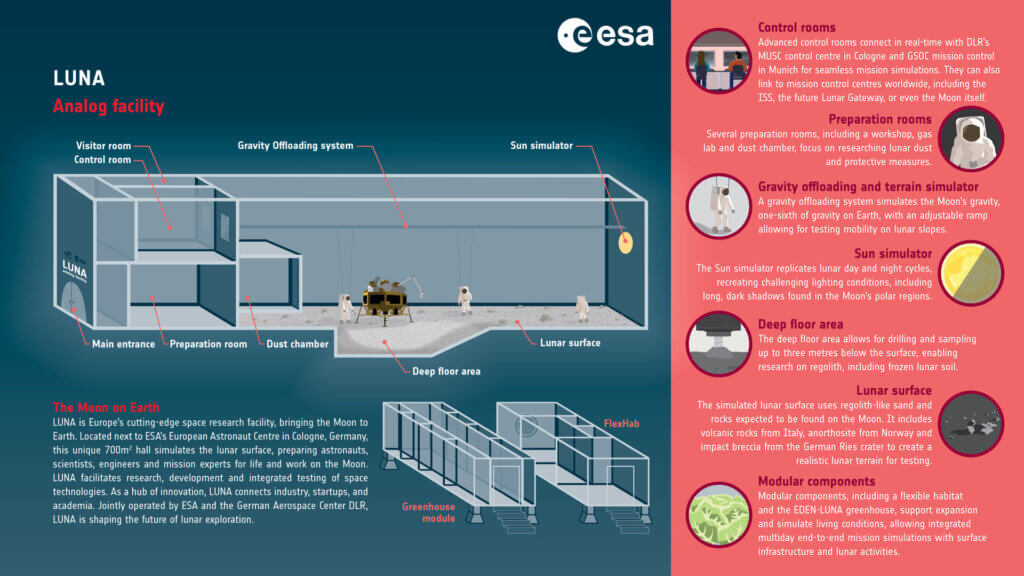
Ibadan, 26th September 2024. – The European Space Agency (ESA) and the German Aerospace Agency (DLR) have jointly inaugurated LUNA, a lunar analogue facility that both parties will operate. The inauguration took place on 25 September in Cologne, Germany.
LUNA features a 700-square-meter area that replicates the lunar surface using 900 tons of basalt-derived volcanic grains and rocks processed to create a “regolith simulant,” providing a unique testing environment. A deep soil area will also allow drilling and sampling up to three meters below the surface, enabling research on regolith, including frozen lunar soil. LUNA also includes a solar simulator that mimics day-night cycles on the Moon.
The facility, which aims to recreate the lunar surface, is located next to ESA’s European Astronaut Centre and will help prepare astronauts, scientists, engineers and mission experts to live and work on the Moon. In addition, the facility will facilitate the research, development and testing of integrated space technology in realistic conditions, providing valuable insights for future lunar missions, such as NASA’s Artemis programme.
ESA and DLR plan to connect the analogue facility to the Lunar Gateway, or even the Moon itself, for seamless mission simulations in the future. The facility will also soon be equipped with additional features, such as a gravity offload system to simulate one-sixth of Earth's gravity on the Moon and an adjustable ramp to test mobility on lunar slopes.
Commenting on LUNA, ESA Director General Josef Aschbacher said: “The inauguration of LUNA marks an important milestone in Europe’s space exploration efforts. This facility, with its ability to replicate lunar conditions, improves our knowledge of the Moon and prepares us for future missions. We are proud to lead this project, which puts Europe at the forefront of lunar exploration and beyond, while fostering international collaboration in space research.”